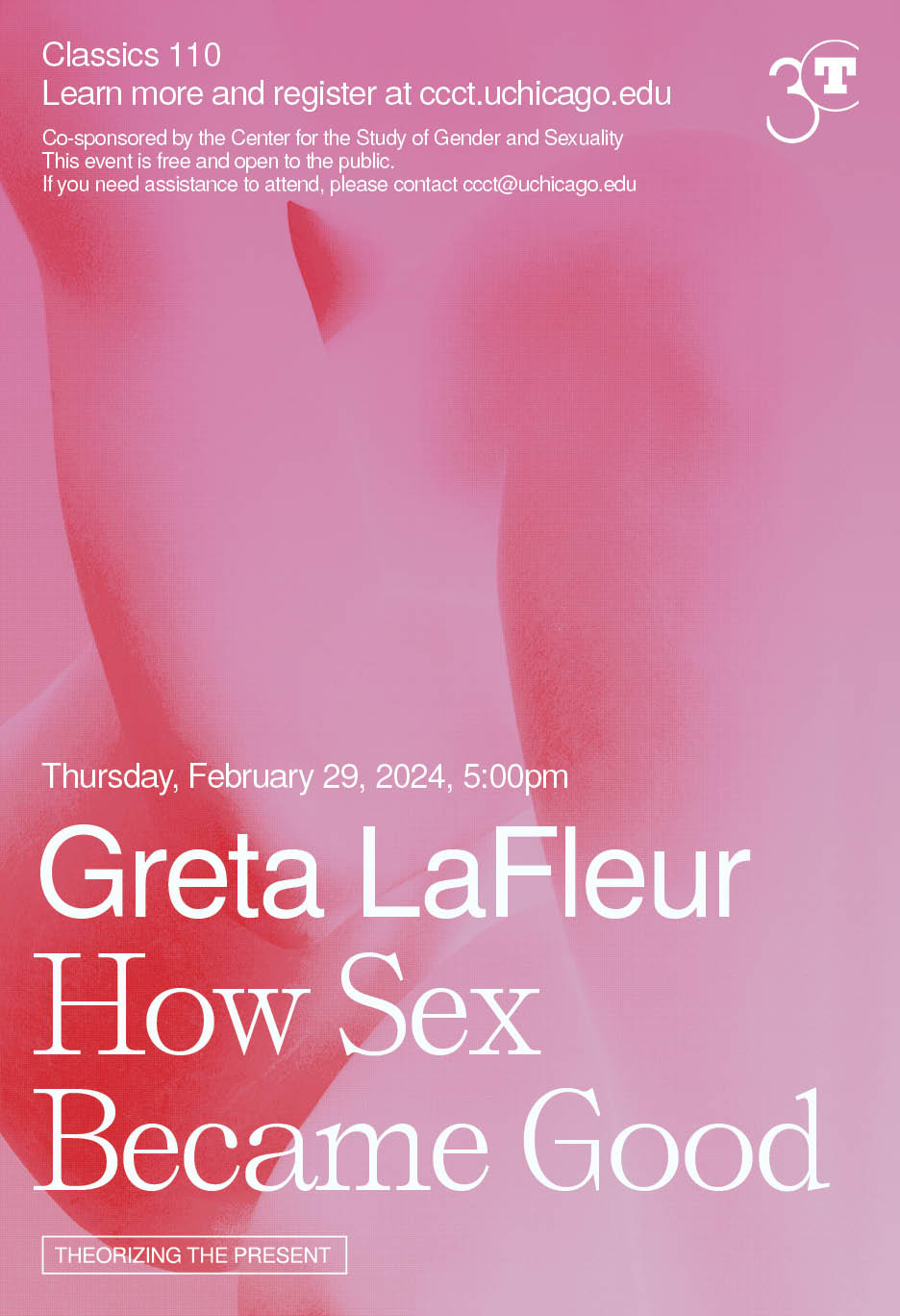Categories
Greta LaFleurHow Sex Became Good
Thursday, February 29, 2024, 5:00–6:30pmThe questions at the center of How Sex Became Good were those with which I was left in the wake of finishing my first book: as a white, queer feminist living in the twenty-first century, I am the inheritor of a tradition—wrought by women’s, gay, and other liberation movements—that posits bodily autonomy and sexual enfranchisement as an incontrovertible political good, a vision of sexual practice more or less coterminous with freedom itself. Yet as a scholar working at the intersections of the history of race, the history of science, and the history of sexuality in eighteenth-century British colonial North America, I cannot ignore the fact that almost every representation or discussion of sexual encounters or sexual practice that I have come across in fifteen years of archival research has been, at best, significantly shaped and sometimes entirely determined by violence and coercion. Sexuality has always been one of the most cherished tools of structures of domination, including, but in no way limited to, colonization, enslavement, other forms of bonded labor, and racial hierarchy— white supremacy in particular.
If affirmative consent is, today, the dialectical and behavioral benchmark that is held out—on college campuses, in public service announcements, and in many sexual education curricula— as the gold standard of sexual practice, then how do we square the overbearing reality that most sexual practice has historically been, and perhaps may still be, conscripted into the service of violence? Put differently: if one of the hallmarks of the formation that Foucault termed modern sexuality is how it is understood to reflect a subjective sense of autonomous, individuated desire, then what understandings of sexual practice prior to the modern period needed to be shed for modern sexuality to emerge as an incontrovertible political good?
How Sex Became Good takes the twentieth-century political distinction between sexual violence and sex “itself” as a point of departure to consider how efforts to address the problem of sexual violence between the eighteenth century and the twentieth came to bear on modern understandings of sex and sexuality—what sex is, what sex is not, and how that distinction came to be.
Greta LaFleur is Associate Professor of American Studies and Women’s, Gender and Sexuality Studies at Yale University, and the author of The Natural History of Sexuality in Early America (JHUP 2018). LaFleur is also the co-editor of three journal special issues: a 2019 special issue of American Quarterly on “Origins of Biopolitics in the Americas,” a 2022 special issue of Transgender Studies Quarterly on “Trans Exclusionary Feminisms and the Global New Right,” and a 2023 special issue of GLQ on “The Science of Sex Itself.” Finally, LaFleur is also the co-editor of two volumes of essays: Trans Historical: Gender Plurality Before the Modern (Cornell UP, 2021) and American Literature in Transition, 1770-1828 (Cambridge UP, 2022).
Presented by 3CT and co-sponsored by the Center for the Study of Gender and Sexuality.
This event is free and open to the public, and registration is recommended. Please email us at ccct@uchicago.edu if you require any accommodations to enable your full participation.





